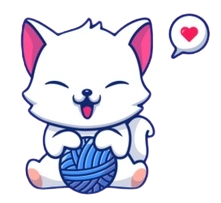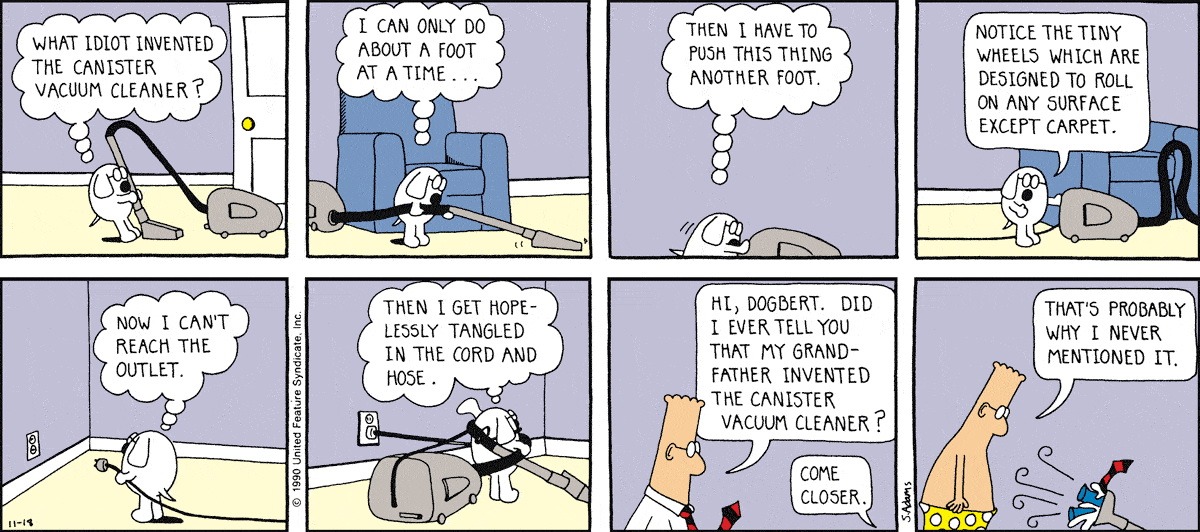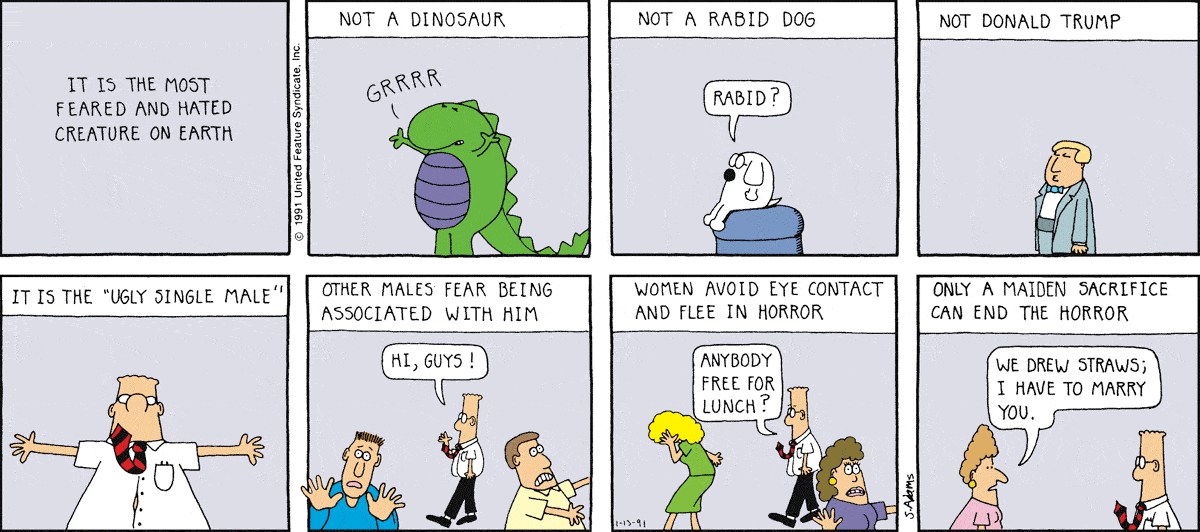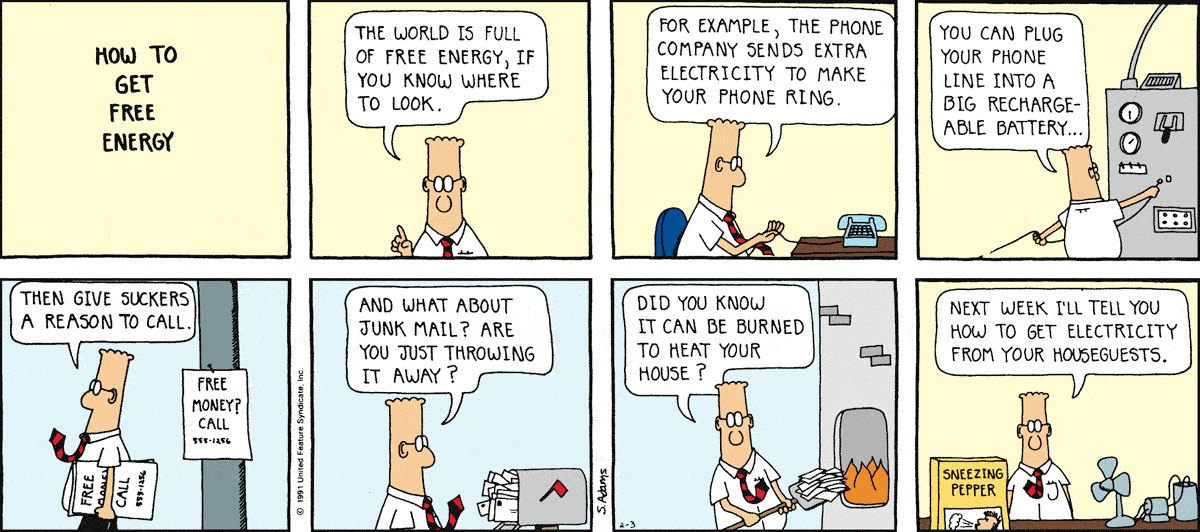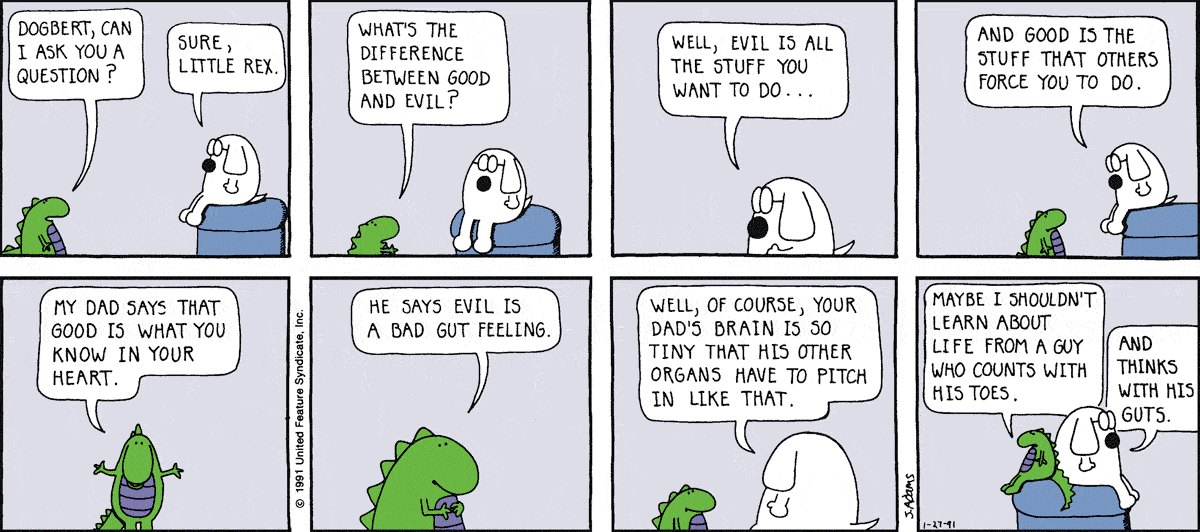Scott Adams’ Dilbert Comics is one of the most recognizable and enduring comic strips that brilliantly captures the absurdities of modern corporate culture. Since its debut in 1989, Dilbert has connected with countless readers who see reflections of their own office experiences in its humor and biting social commentary. The comic strip revolves around the life of Dilbert, an everyman engineer trapped in the maddening chaos of a corporate environment, where incompetence reigns, bureaucracy thrives, and logic is often nowhere to be found.
Best Comics
Through a clever mix of sarcasm and wit, the strip explores the dynamics of workplaces with such accuracy that it feels eerily relatable to office workers worldwide.
Source & Credit: Scott – Dilbert
Disclaimer: The comics showcased on our platform are the intellectual property of their creators. Our aim is to share these remarkable works with a broader audience. If any artist feels their work is not appropriately credited or is being misused, please contact us promptly for resolution. We respect the rights of creators and are committed to addressing any concerns swiftly.
#1
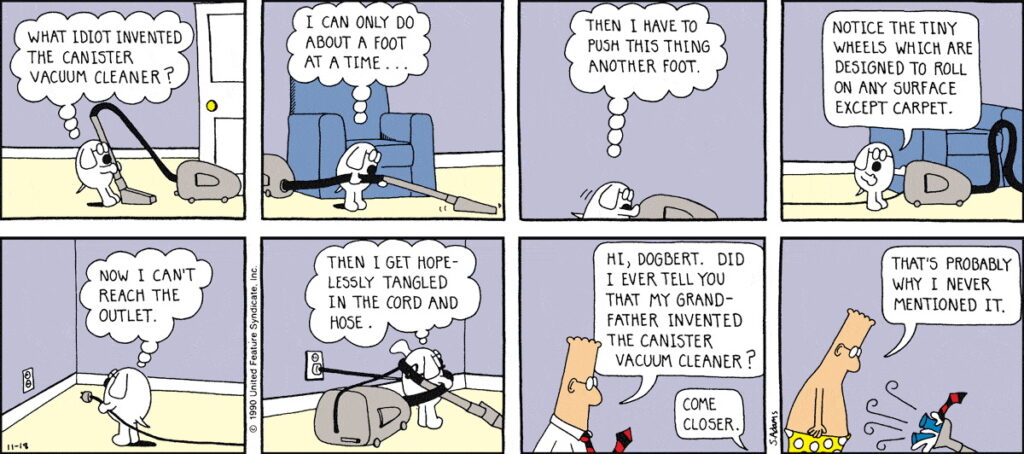
#2

At the center of the comic is Dilbert himself, a diligent but hapless employee with a knack for solving technical problems but no power to fix the chaos that surrounds him. His iconic look—thick glasses, a short-sleeved shirt, and a tie that defies gravity—has become a symbol of the modern white-collar worker. Dilbert represents a breed of individuals who understand the rules of their work environments yet remain powerless against the unrelenting tide of absurd decisions and bureaucratic hurdles. His deadpan expressions and occasional bewilderment speak to anyone who’s sat through pointless meetings or been handed tasks doomed to fail.
#3

#4

#5

The true brilliance of Dilbert lies in its cast of supporting characters, each serving as a metaphor for real-world workplace archetypes. Among these, the most infamous is the Pointy-Haired Boss, an embodiment of managerial incompetence and cluelessness. This character is perhaps the strip’s most biting satire, representing every boss who has ever made ill-informed decisions, misunderstood their employees’ jobs, or jumped on the latest corporate trend without thinking about the consequences.
#6

#7

#8

#9

#10

#11

#12

#13

#14
The Pointy-Haired Boss is oblivious to his own ineptitude, yet he somehow holds authority, leaving his team to clean up the messes he creates. His presence is a caricature of the common phenomenon of unqualified individuals being promoted into leadership roles, an issue all too familiar in many workplaces.

Dilbert’s appeal lies in its ability to make readers laugh while also offering a mirror to the absurdities they encounter in their own working lives. It taps into a universal frustration—the sense that, in many cases, office life doesn’t make sense, that the people in charge often have no idea what they’re doing, and that hard work and talent aren’t always rewarded. For many readers, Dilbert is more than just a comic strip; it’s a form of catharsis, allowing them to see their own frustrations reflected in a humorous, exaggerated light.
#15

#16

#17

As long as there are offices, bosses, meetings, and the complex dynamics of corporate culture, Dilbert will remain relevant. It captures the eternal struggle of the employee trying to survive and thrive in a world that often seems determined to thwart them at every turn. With its sharp wit, memorable characters, and biting social commentary, Dilbert continues to offer readers both a laugh and a deeper understanding of the strange, sometimes maddening world of work.
Through the lens of these characters, Scott Adams explores the absurdities of corporate culture, lampooning everything from mind-numbing meetings and nonsensical office policies to clueless managers and clueless co-workers. Dilbert’s humor is both relatable and biting, offering readers a cathartic release from the frustrations of the modern workplace while also prompting them to reflect on the absurdities of their own professional lives.
One of the key strengths of Comic Strips lies in its ability to capture the essence of corporate life with remarkable accuracy. Scott draws upon his own experiences working in the corporate world to inform his writing, infusing the strip with a sense of authenticity that resonates with readers. Whether it’s the mindless bureaucracy, the soul-crushing meetings, or the nonsensical jargon, Comic Stripcs lays bare the realities of modern office culture with unflinching precision.
Yet, amidst the humor and satire, Comic Strips also offers astute observations about human nature and the dynamics of power and authority. Through the antics of its characters, the strip explores themes of ambition, greed, incompetence, and the eternal struggle between the individual and the institution. Dilbert himself serves as a reluctant everyman, navigating the treacherous waters of corporate life with a mix of resignation and bemusement, offering readers a window into their own struggles and frustrations.
Over the years, Dilbert Comics has evolved to reflect changes in technology, society, and the workplace. From the rise of the internet and the dot-com bubble to the advent of social media and the gig economy, Scott Adams has adeptly incorporated these developments into the strip, ensuring that Dilbert remains relevant and resonant with readers of all ages.
Over the years, Comic strip has evolved to reflect changes in technology, society, and the workplace. From the rise of the internet and the dot-com bubble to the advent of social media and the gig economy, Scott has adeptly incorporated these developments into the strip, ensuring that Dilbert remains relevant and resonant with readers of all ages.
Despite its success, Dilbert Comic strip has not been without its controversies. Scott , the creator of the strip, has faced criticism for his outspoken views on various social and political issues, including gender, race, and the role of government. His willingness to tackle controversial topics head-on has earned him both praise and condemnation, but it has also sparked important conversations about the role of satire in society and the responsibilities of artists and creators.
In conclusion, Comic strip stands as a testament to the enduring power of satire and humor. Through its sharp wit, insightful commentary, and memorable characters, the strip has entertained and enlightened readers for over three decades, offering a humorous yet poignant reflection on the absurdities of corporate life. As long as there are cubicles, meetings, and clueless bosses, Dilbert Comics will continue to be a beloved staple of the comic strip landscape, providing readers with a much-needed dose of laughter and levity in an often bewildering world.
